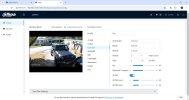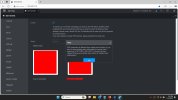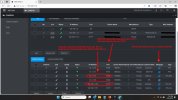Hello,
This is my first message here! I am looking to set up a security system for my home and wanted to get some info about the Dahua NVRs.
I was originally thinking of Unifi Protect stuff but their cameras are not very high quality and their ONVIF support is at its infancy. Basically it's just a video recorder for ONVIF cameras.
I see that Empire Tech cameras are highly recommended but I need an NVR to record their footage with AI features and that brings me to my main questions.
This is my first message here! I am looking to set up a security system for my home and wanted to get some info about the Dahua NVRs.
I was originally thinking of Unifi Protect stuff but their cameras are not very high quality and their ONVIF support is at its infancy. Basically it's just a video recorder for ONVIF cameras.
I see that Empire Tech cameras are highly recommended but I need an NVR to record their footage with AI features and that brings me to my main questions.
- Does the Dahua NVR web interface have the full feature list of the HDMI/local interface? This NVR will be in a closet and never be hooked up to an HDMI display.
- Does the web interface require any plugins to be installed? I want to minimize security flaws and this would be a show stopper. My plan is to completely block the internet access of the NVR but if I am installing either a desktop app or a desktop plugin/exe that defeats the purpose of security. Surely a browser can make web calls but the exploits are pretty limited in that use case.
- What about choosing a different brand of NVR to go with Dahua/Empire Tech cameras? I say Empire Tech because as far as I understand Dahua is banned from sales in US.




